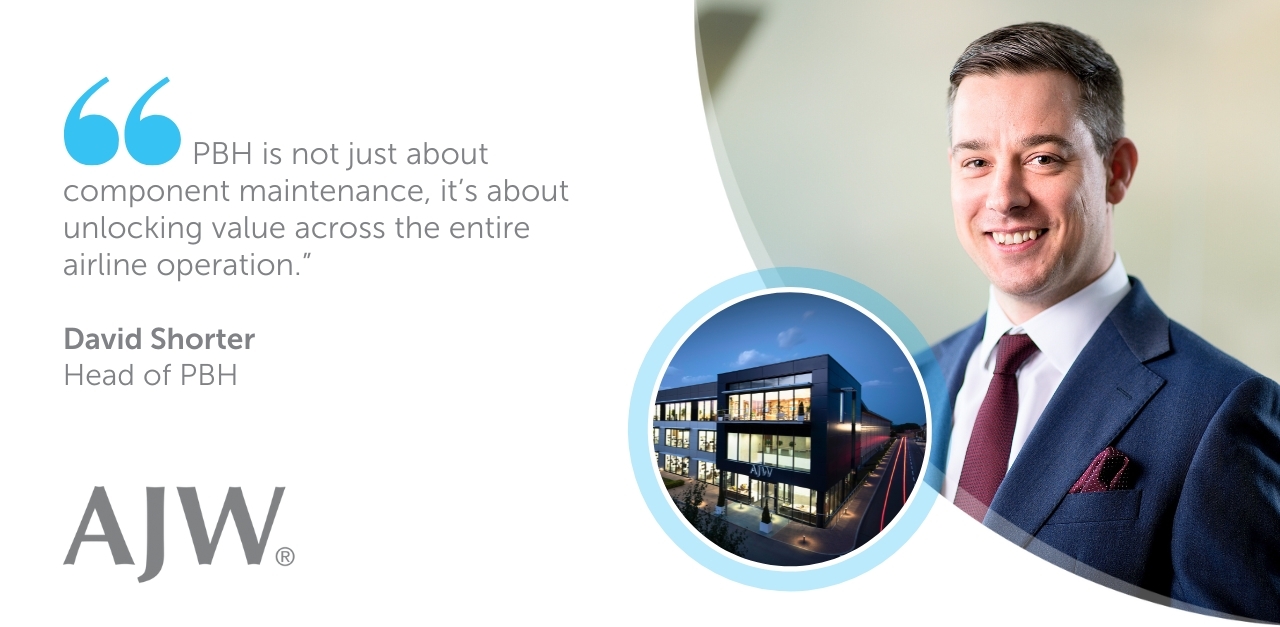

24/7 AOG Critical Response
Hotline![]() UK +44 1403 798888US +1 877 780 2008
UK +44 1403 798888US +1 877 780 2008
Our award winning global AOG service is manned 24 hours a day, 365 days a year.
Please call +44 1403 798888 or email aog@ajw-group.com.

31 Jul 2025

In today’s fast-evolving aviation landscape, Power-by-the-Hour (PBH) agreements remain a cornerstone of efficient fleet management. These performance-based contracts offer airlines predictable maintenance costs, improved reliability, and scalable support, making them a strategic choice for operators worldwide. MRO Business Today take a deep dive into the how these contracts operate at AJW Group, an industry leader in PBH services.
With the global MRO market exceeding $86.5 billion and contracts growing at over 6% annually, the PBH model is increasingly seen not just as a cost-control measure, but as a driver of operational resilience.
At its core, PBH enables airlines to pay a fixed rate per flight hour for comprehensive component support.
This shifts the burden of unexpected maintenance costs to the service provider and allows operators to forecast budgets more accurately. Airlines benefit from reduced capital investment in spares, access to global component pools, and the assurance of rapid turnaround times. These benefits are key to maximizing aircraft availability.
AJW Group continue to lead the way and has secured a dominant industry position, particularly across A320 and B737 platforms. Their global facilities include support from key centres such as AJW Technique in Montreal where tens of thousands of component repairs are completed every year.
MRO Business Today highlight that AJW has recently signed and expanded PBH agreements with a growing roster of global carriers. Notable deals include:
-JetSMART (Chile) for A320 support
-FlySafair (South Africa) covering its B737-800 fleet
-Azerbaijan Airlines, Ascend Airways (UK)
-And a major expansion with Air Transat (Canada) across multiple platforms including the A321neo and B737 MAX.

These contracts demonstrate the adaptability of the PBH model across diverse fleets and geographies. Recent PBH agreements, such AJW Group’s partnerships with JetSMART in Chile and FlySafair in South Africa, demonstrate that regional inventory hubs and tailored logistics solutions are making PBH feasible and attractive for operators in Latin America, Africa, and the Asia-Pacific region.
Beyond cost and reliability, PBH also contributes to sustainability goals. With up to 89% of aircraft components reclaimed and reused, the model promotes circular economy practices, extending the life of valuable assets and reducing environmental impact.
As fleets grow and evolve, especially among low-cost and ultra-low-cost carriers, PBH provides the flexibility and scalability needed to support long-term success. With added value from warranty management, predictive analytics, and regional logistics hubs, it’s clear that PBH has become more than just a maintenance strategy - it’s a vital enabler of performance, efficiency, and future-readiness.
Speaking about the Group’s industry leading PBH contracts, AJW’s Head of PBH, David Shorter commented:
“Power-by-the-Hour is not just about component maintenance, it’s about unlocking value across the entire airline operation. AJW is proud to deliver global support with local precision, enabling our partners to fly smarter, leaner, and greener.”
Looking for a leading PBH partner? Talk to us about your PBH contract needs today.